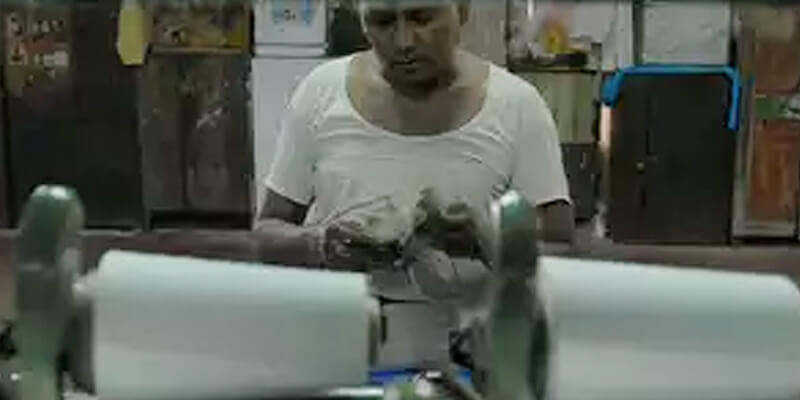CHENNAI: An interesting Chennai connection to cotton farming in regions across the country is bringing cheer to farmers. Sivanand, a cotton farmer from Donkhar Khandala village of Vidarbha region in Maharashtra, which witnessed a spate of farmer suicides some years ago, is happy collaborating with a Chennai-based start up called Mircrospin Machine Works. He gets paid better for his cotton and the wages from working at the spinning unit nearby adds to his revenue.
Started by Kannan L, an IIT-Madras graduate, Microspin started piloting its patented technology in Vidarbha region 18 months ago. The idea was to develop a different method of spinning in a much smaller scale than the conventional spinning. It integrated activities in the production line such as weaving and dying under a single roof eliminat ing intermediary costs.
Farmers had been provided with the solution when the industry was fragmented with different production activities functioning in isolation. The increasing number of intermediaries had caused prices to soar. “Arbitrage, a lot of batch and queue, waiting period, transportation involving long distances, and all such unproductive activities were happening because the industry was not integrated,” said Kannan.
By introducing the process of spinning at the farmer’s level and not just merely selling off the cotton for a price, the farmers earning has doubled. Kishor Chandak, the sarpanch of the village too agreed with him.
While around 90% of the produce that reaches the Microspin unit is BT cotton, Kannan admitted that organic farming is a more sustainable way of cultivating cotton. Identifying it as a possible sustainable solution for the distress that has been grappling the region, Tula, another initiative from Chennai, too works among the cotton growers of Vidarbha.
“While trying to bring value to something we also have to consider the economic and ecological aspects of it,” said Ananthoo, who runs a volunteer group Tula. It promotes organic cotton farming among the farmers of Vidarbha and Karnataka, and organic clothes among the consumers.
“A huge sector of our population is into weaving. Each piece of organic textile is custom made. So there needs to be a market for it,” he said.
Starting its operations two years ago, Tula is now working with around 25 organic cotton farmers and markets the product under its own brand. Procuring cotton for a premium price it tries to improve the income of the rainfed small and marginal farmers through low external input organic cotton production. Spinning is done by hand near the farms, while weaving and stitch ing are done at Melkotte in Karnataka by the local communities who are also ensured better compensations.
Tula also fights the use of harmful pesticides and chemical inputs from farming area and promotes natural dyeing for textile presenting it as a replicable and sustainable model.
Ananthoo admitted that consumer awareness regarding organic cotton is low. “We try to educate the consumers as well by conducting talks and exhibitions and engaging with students,” he said.
Paruthi, another similar initiative by Uma Prajapati, founder of Auroville-based ‘Upasana’, too procures cotton from the organic farmers of Madurai for a premium price and promotes organic clothing line under its brand name. It promotes indigenous varieties of cottons and organic farming techniques.
Experts, however, emphasise the need for state intervention and say technology players alone cannot change the landscape. “Technology along with a support mechanism only could be a long-lasting solution.” said Prof K Nagaraj, economist and faculty at Madras Institute of Development Studies.
“Individual groups cannot fill in the gap of a support system. They don’t have support services or credit services. In all these aspects the state has to intervene for a long-term solution,” he added.
![]()


